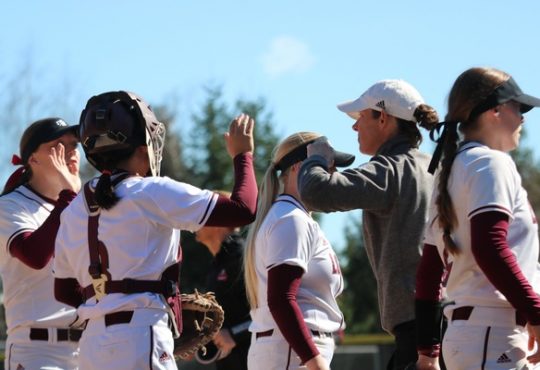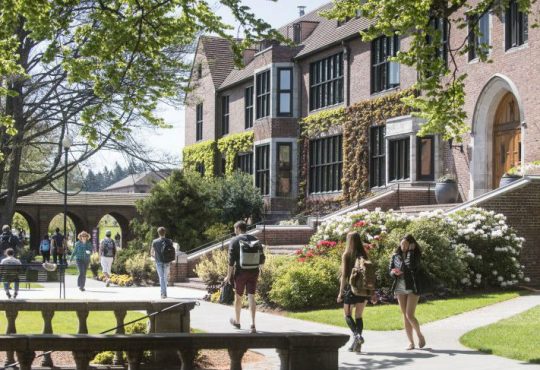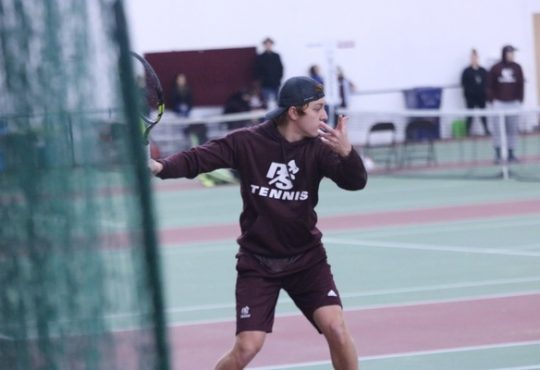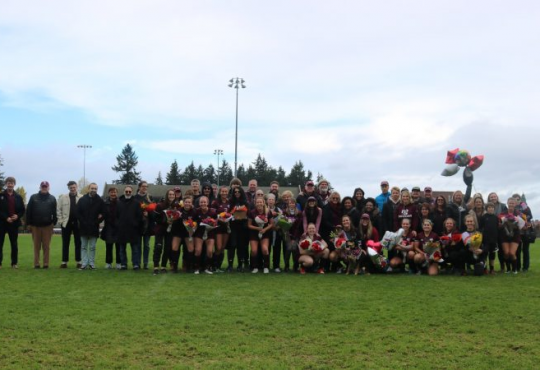
Student athletes have taken the initiative to speak with their coaches in order to advocate for athletic teams to undertake Green Dot education. While all students at the University go through the Green Dot program as part of orientation, it is only a one and a half hour long training session. In contrast, the program that student athletes are seeking is a six-hour training program, which is more comprehensive.
“We feel this is a very important issue for the campus community, and all the students I’ve spoken to have been all for this,” sophomore Ella Frazer said. She is on the Women’s Lacrosse team who also writes for The Trail.
Marta Palmquist Cady, the Assistant Dean of Students and Director of Student Activities said that three teams have currently scheduled Green Dot education training with her. “Our idea is to get all athletes Green Dot educated this year,” sophomore Alex Keysselitz, of the Crew team, said. “Next year, only first year students would do it – this would make it a part of the culture of being on a sports team.”
“We as a department are not mandating Green Dot training because we don’t want it to be enforcing,” Amy Hackett, the Director of Physical Education, Athletics and Recreation said. “But we are trying to have it be a team-based process because with teams there is camaraderie, there is investment, and there is value to team-based initiatives.”
Hackett went on to explain the logistical issues inherent in organizing large training programs, and that having Green Dot training sessions for individual teams are more feasible and will be more effective in educating team members.
“We are working with teams to find suitable times for training that work in their seasonal schedule,” senior Crew member Sergio Espinoza, said. “We’re trying to make this a collaborative process with team members, Marta, and coaches to make this work effectively.”
“I think bystander training programs are the way to go in working with any issues that need to be addressed,” Palmquist said. “Sexual violence is complicated and needs to be addressed in a specific way in order to create real change.”
Student athletes echoed this sentiment.
“Our goal is to motivate and inspire people to be aware and take action on this issue,” Keysselitz said. “We want to use athletics as a platform to create change.”
Using campus organizations to commit to Green Dot education programs as a way to encourage attendance among their members is not a new idea. Greek houses, KUPS, and campus media organizations have all participated in targeted Green Dot trainings in the past few years.
“Athletics allows students to take the initiative on creating change, and this is an immense community on campus,” Frazer said. “We think athletes can help drive the school in combating rape culture and sexual violence.”
“I think a big issue is that we talk a lot, but we don’t say much,” Keysselitz said. “Puget Sound is a great campus, but sexual violence still happens here. We’re trying to get people to dig beneath the surface and to get the campus community involved in actively ending this epidemic.”
Sexual violence remains a significant issue on campus communities. Puget Sound’s Fall 2014 Discriminatory Harassment Report detailed at least 10 instances of sexual harassment, assault and violence in the Puget Sound community. This figure is far fewer than the US Department of Justice estimates of 20-25 percent of women who experience rape while attending college.
“The biggest thing to remember is that sexual violence happens, it happens here on campus, and it can target anyone,” Frazer said. “If it affects one person in the campus community, it affects all of us. We have the power to end this, and Puget Sound could be a leader in combating sexual violence if the community commits to educating itself and actively combating it.”






